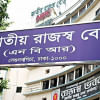Govt may offer tax exemption for foreign research grants

The government is considering granting a tax exemption for foreign grants provided to local researchers in order to boost their activities and earn more foreign currency.
The researchers currently pay taxes of up to 30 per cent on their foreign grants.
On condition of anonymity, a senior official of the NBR confirmed yesterday that the National Board of Revenue (NBR) is working on the matter and will soon issue a statutory regulatory order in this regard.
The NBR official also informed that the government may set some provisions to ensure the funds received through foreign grants were properly utilised.
Welcoming the move, Fahmida Khatun, executive director of the Centre for Policy Dialogue (CPD), said this initiative will definitely help promote research in the country.
"This will encourage researchers to work more and may gradually help form a knowledge-based country," she added.
The economist pointed out that like the CPD, other non-government research organisations also contribute to the foreign currency reserves by earning foreign grants.
"And although the amount is small, it has a good impact," she added.
She also said the government should not impose any taxes on non-profit organisations.
"I fully agree with the government's move to waive taxes on foreign funds that researchers obtain," said Mohammad Tarikul Islam, a professor of the government and politics department at Jahangirnagar University.
Since research grants and fellowships are considered educational aid, it should be free from taxes when coming from foreign institutions or financing organisations, added Islam, also a visiting scholar of Harvard University who recently got some foreign grants.
Citing how having to pay taxes on grants is disappointing for researchers, he said removing such barriers would encourage academic excellence and institutional growth.
"This is because scholars and researchers will strive tirelessly for improving their reputation, creativity, publications, discoveries and global engagement," added Islam, also a former visiting scholar of the University of Oxford, the University of Cambridge, and SOAS University of London.
TAX BENEFITS FOR LEATHER INDUSTRY
The government is also planning to halve the source tax on leather goods exports from 1 percent to boost competitiveness of the country's leather industry.
Currently, all export products, including leather, are subject to a 1 percent source tax in Bangladesh.
A statutory regulatory order will be issued in this regard soon, according to sources at the NBR.

 For all latest news, follow The Daily Star's Google News channel.
For all latest news, follow The Daily Star's Google News channel. 








Comments